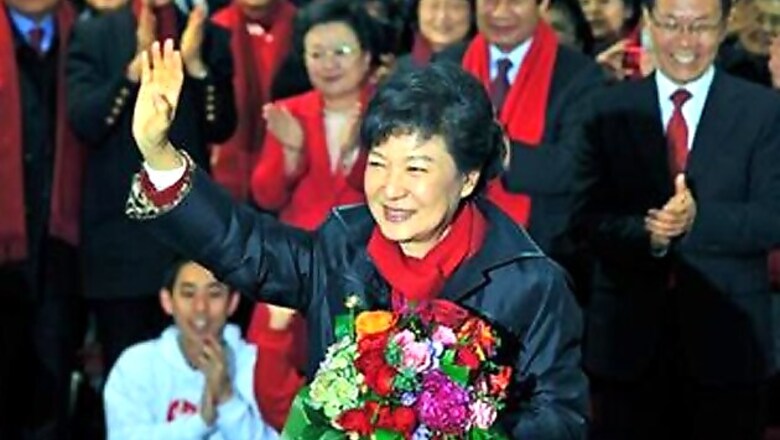
views
Seoul: South Korea's new president Park Geun-hye urged North Korea on Monday to abandon its nuclear ambitions, and to stop wasting its scarce resources on arms development, less than two weeks after the country carried out its third nuclear test. Park, 61, the daughter of South Korea's former military ruler Park Chung-hee, is the first woman president of prosperous South Korea and one of her campaign promises was to engage with the North if it halted its nuclear weapons plans.
"I urge North Korea to abandon its nuclear ambitions without delay and embark on the path to peace and shared development," Park said after being inaugurated on Monday.
North Korea is ruled by Kim Jong-un, the third of his line to hold power in Pyongyang and the grandson of a man who tried to assassinate Park's father.
Park's father seized power in a 1961 coup and ruled for 18 years until he was gunned down by his security chief in 1979. He helped transform South Korea from a poverty-stricken country where income was just $100 a year into what is now Asia's fourth largest economy and an industrial powerhouse whose cars, telephones and ships are sold worldwide.
Park also urged South Koreans to recreate the drive of a country that was once dubbed "the Miracle on the Han River", as she prepared to return the presidential mansion 33 years after her father's assassination.
In December's presidential poll, one of the most hotly contested elections for years, Park won about 52 percent of the vote, compared with 48 percent for her liberal opponent.
Park served as First Lady to her father Park Chung-hee after her mother was gunned down by a North Korean-backed assassin in 1974. She has been a top legislator since 1998 and has been dubbed "The Queen of Elections" for her ability to score victories for her conservative party.
Park has promised "economic democracy" and to increase "national happiness" in a country where income differentials between the poorest and the richest have soared in recent years.

















Comments
0 comment